How a Swiss-Chinese family returned to Wuhan
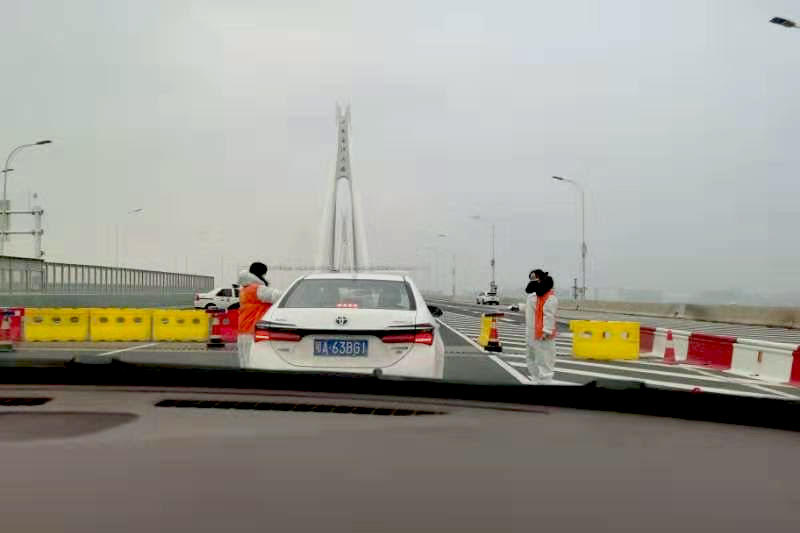
When the coronavirus spread in China, one Swiss expat and his family were on a short holiday in Hong Kong. From there, they returned to their home in Wuhan, the epicentre of the health crisis. They shared their experience of travelling to the city earlier this week.
Fears are running high globally due to the coronavirus originating in the Chinese city of Wuhan. Zhou Xianwang, the city’s mayor, estimatedExternal link last week that up to five million people had left the metropolis of 11 million residents since the outbreak.
But one Swiss man and his family, who currently reside in Wuhan, decided to go the other way.
Emmanuel Mathias Geebelen, 42, is a stay-at-home father originally from Geneva. His wife Connie, 28, is a Chinese national from Hubei province, of which Wuhan is the capital. She leads a kindergarten. They moved to the city in April 2019 with their son Nikola; their youngest, Nikita, was born soon after they arrived.
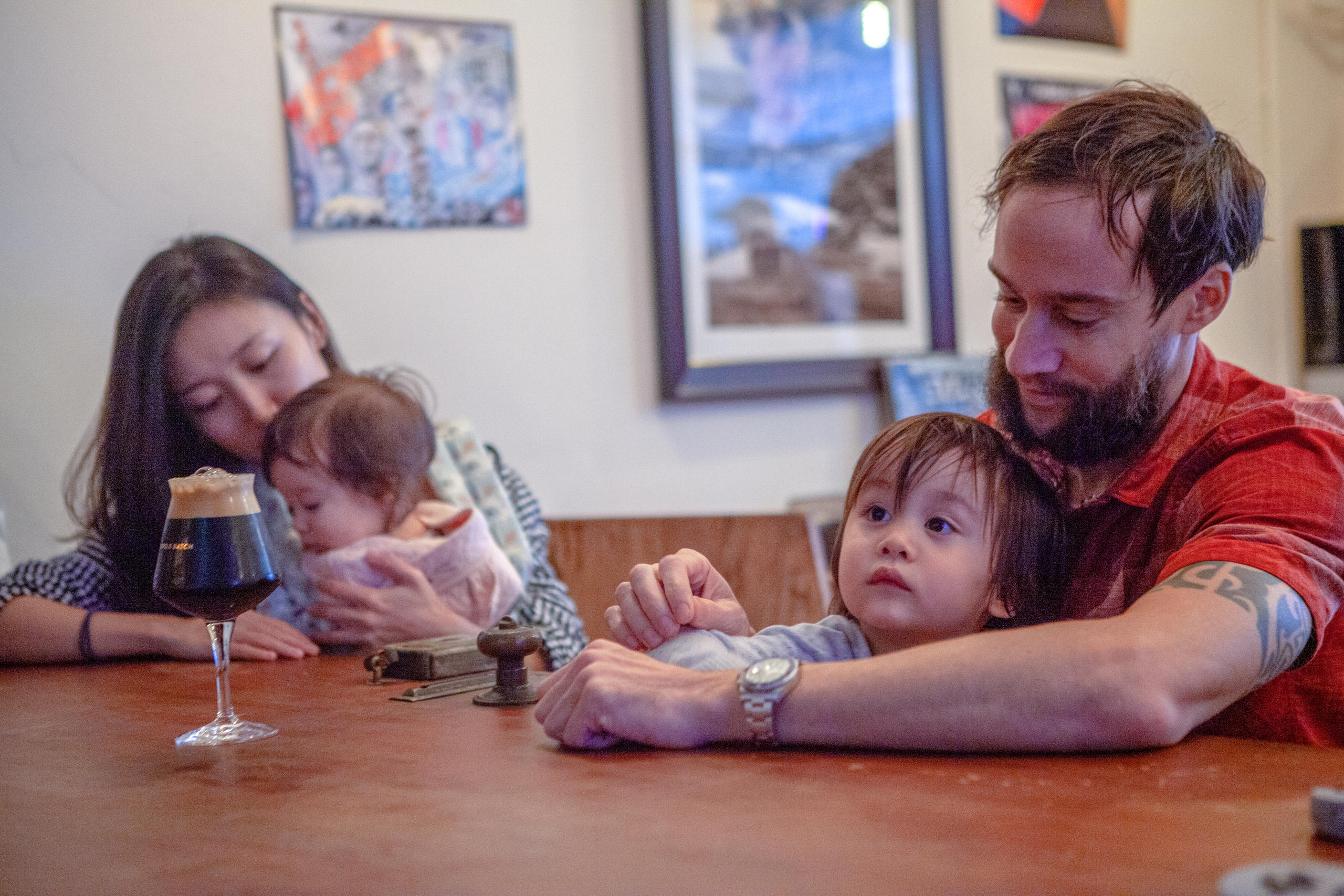
The Swiss embassy in Beijing said it had eight citizens registered in Wuhan before the outbreak; about half chose to stay put. Geebelen said he had not registered and didn’t count among those eight.
The family decided to take a trip to Hong Kong during the annual Lunar New Year holidays. Like most other Chinese households, the family had planned their trip months ahead.
They decided to stay on Lamma, a small island in Hong Kong that is home to an alternative scene and feels a world away from city life. With no vehicles on the island, it has a close-knit community with quirky bars and restaurants. Geebelen lived there after leaving Switzerland in 2013 and remembers the lifestyle fondly. A keen hiker, he has hiked many trails in Hong Kong and had previously backpacked around the world.
Lockdown
The government then placed Wuhan and most of the province on lockdown following the outbreak of the virus.
The family considered staying put. Geebelen could have stayed because of his Swiss passport, but visas for Connie, Nikola and Nikita – all Chinese nationals – were due to expire. A growing number of possible alternative travel destinations refused to accept Wuhan residents.
They knew the journey back was going to be more difficult. The flight back to Xiangyang Airport, near Wuhan, had been cancelled because of the outbreak.
The family received a refund, but they knew they had to change their plans quickly before other means of transport also become unavailable. They decided to take a train and see whether they could get off at Wuhan.
“It’s a gamble, but we don’t have any other choice,” Connie said. “We don’t have any backup plans. Nobody can help; it’s quite a desperate situation.”
She said they were worried about their children. “I do my best to look after them and I’m quite confident they’ll be OK,” she said.
On Tuesday the four finally ventured back to Wuhan. That day, there were 6,081 cases confirmed with 132 fatalities.
When they bought the train ticket online, they were not able to buy a ticket to the Chinese city. The sales assistant did not even know whether trains would stop in the city. So they bought a ticket for the stop before Wuhan, a town called Yueyang.
They had booked themselves into business class. Their compartment filled up, but the rest of the train stayed eerily empty. Geebelen said he checked other compartments and couldn’t find other passengers.
But they were lucky and could travel on from Yueyang. “We asked somebody inside the train [for tickets] to Wuhan, and they allowed us to buy them,” he said.
Ghost train
The journey took over four hours. The carriages were almost empty, almost like a ghost train. As they arrived in the city, it was like nothing they’d seen before.
“There’s no one here, everything’s closed,” Geebelen said, recalling their arrival at the usually buzzing central train station.
“When you go to the central place for the disease, they don’t care anymore,” he said. “It’s like going to war: once you’re inside, that’s it,” Geebelen joked drily. He said he saw health checks at other stations and on major roads.
Outside of Wuhan Station, there was barely a traveller in sight. This time of the year, the frenzy reaches its peak as travellers return after the traditional Lunar New Year gatherings.
But not this year. “Ninety-nine per cent of my work colleagues had to cancel their trip,” Connie said. “They have had to stay indoors during the New Year.” Officials had advised people to stay at home. Shops were closed. Buses and the subway are halted.
Friends picked up the family by car and drove them to their flat. The roads were almost empty apart from some checkpoints, Geebelen said. No one is certain when normal life will resume.
Expecting isolation
Upon arrival, they first went to the only supermarket open in their vicinity. It had been ordered to stay open by the authorities. All other shops were shut, Geebelen said. They filled their freezer with meat and fish, expecting to stay isolated for weeks.
At home, they wash their hands in alcohol to disinfect and are extra careful with food deliveries. “The children are both fine but feel pretty bored to stay home all day,” Connie said. She too will face boredom since the provincial government ordered a temporary halt to all business until at least February 13.
But Geebelen insisted: “Worried? no! It doesn’t make a difference.” He also said he was convinced the government was taking all the necessary steps to contain the disease.
They are planning to stay put even though the Swiss authorities are exploring options to evacuate the remaining nationals from Wuhan. But getting to Switzerland is also getting harder. Swiss International Air Lines and its parent company Lufthansa have suspended flights to and from China.
But Geebelen is adamant he will stay. “We’re staying here,” he said. “There’s no way we’re putting ourselves at risk again.”
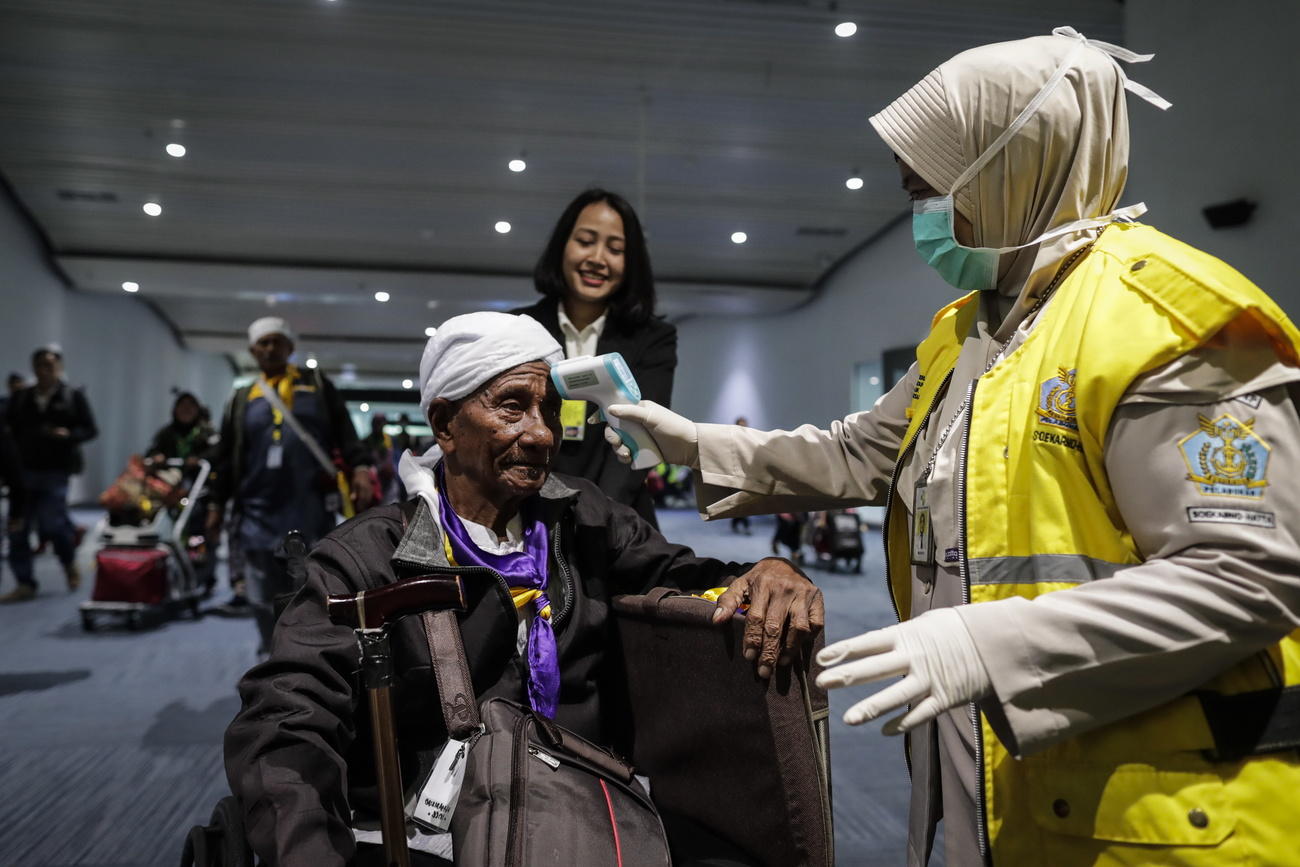
More
Swiss develop test to detect coronavirus

In compliance with the JTI standards
More: SWI swissinfo.ch certified by the Journalism Trust Initiative
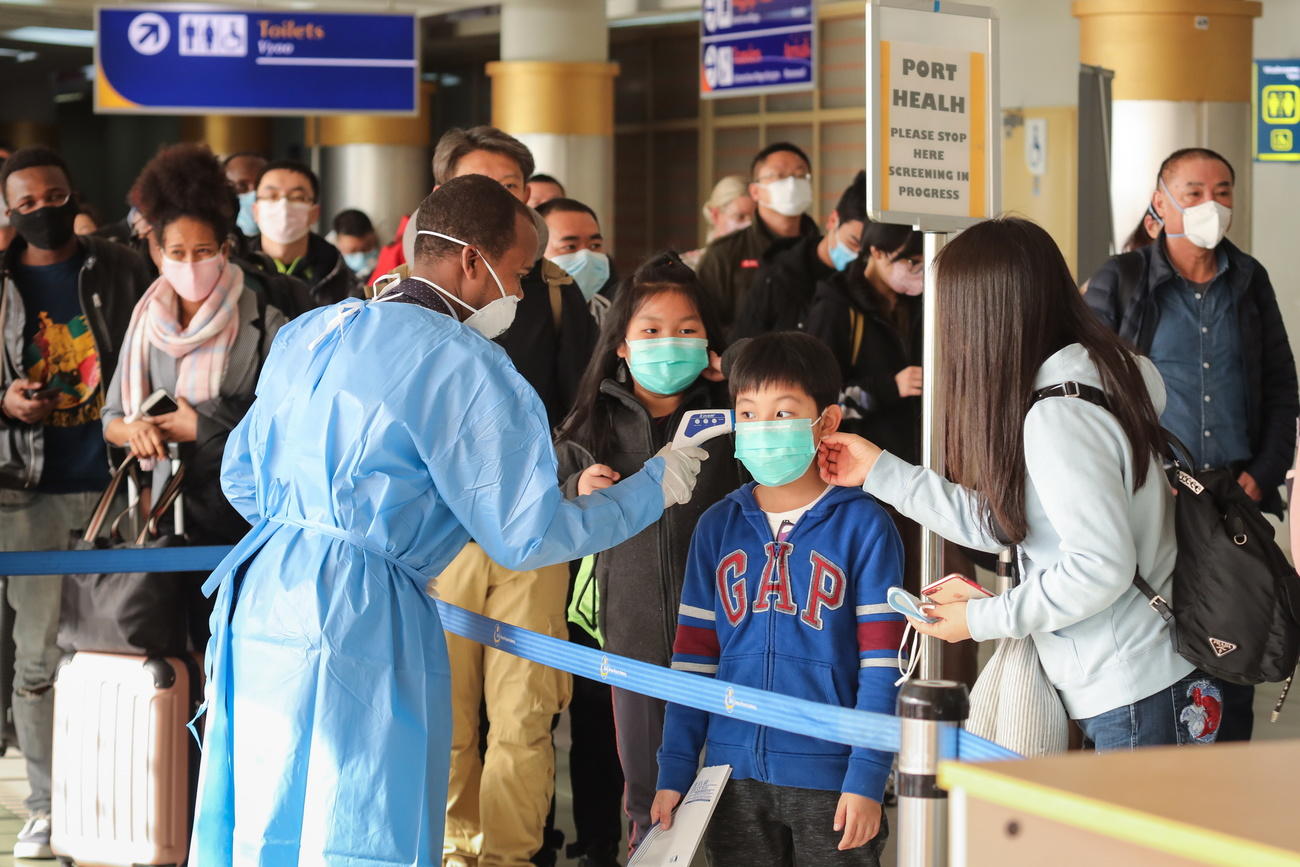
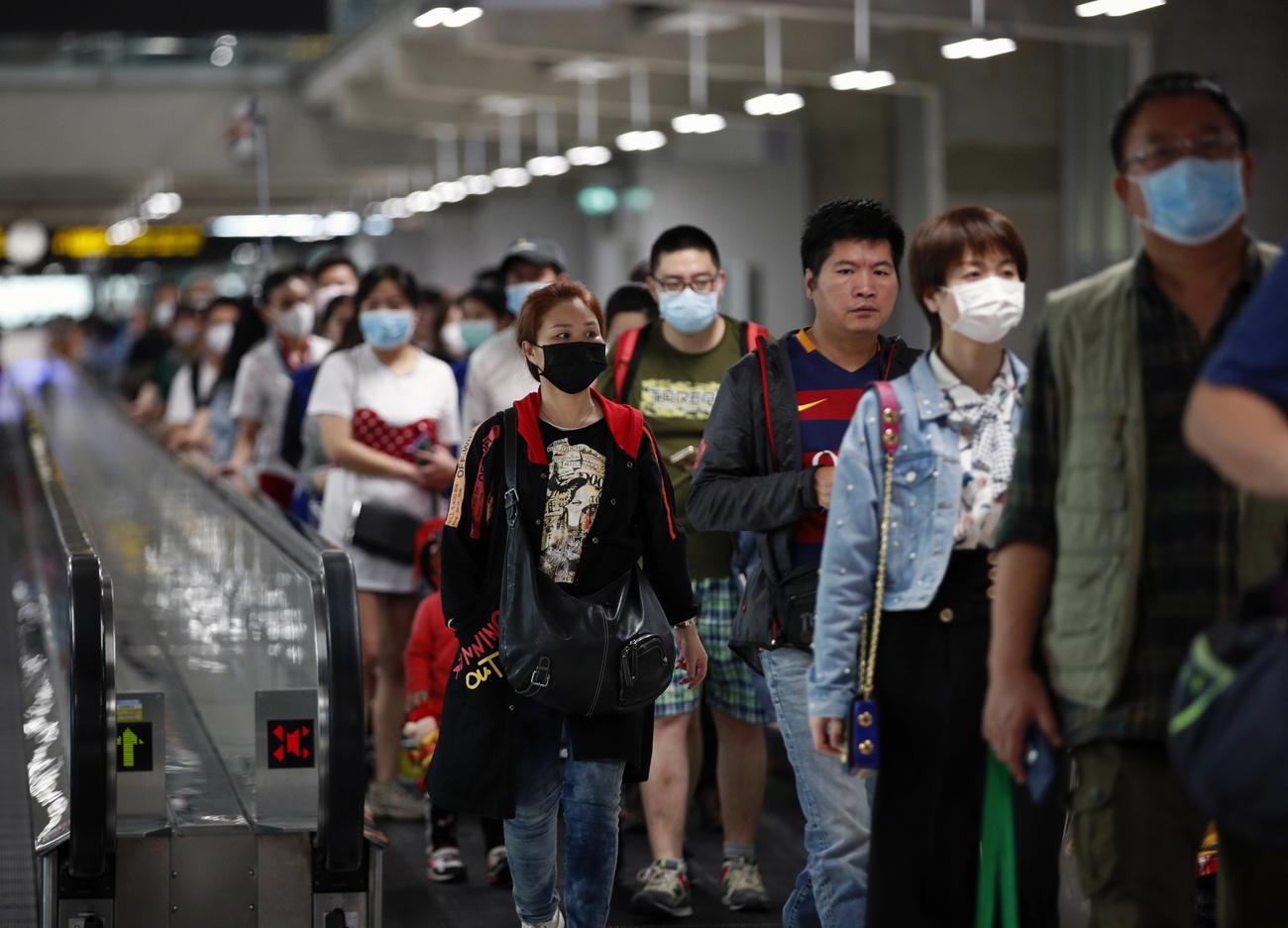
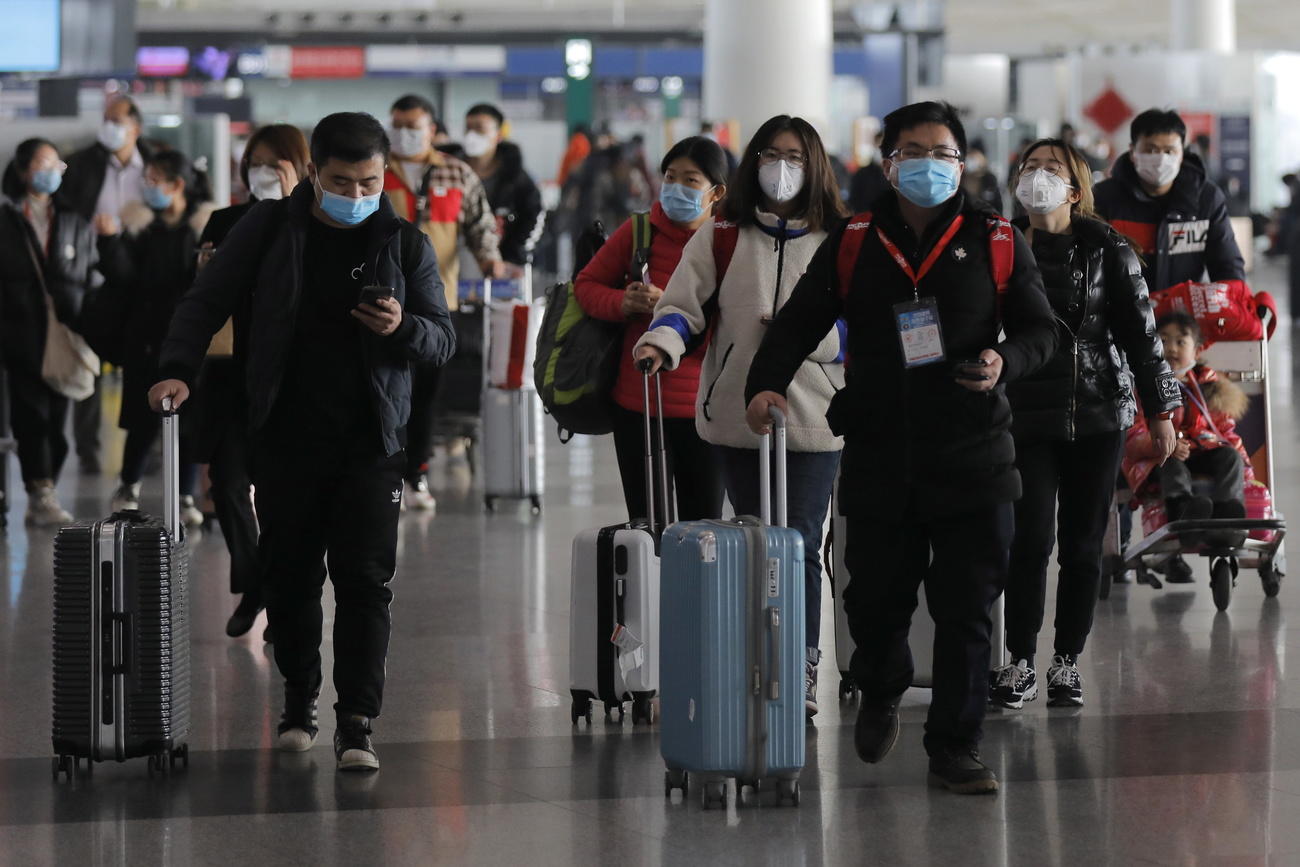
You can find an overview of ongoing debates with our journalists here. Please join us!
If you want to start a conversation about a topic raised in this article or want to report factual errors, email us at english@swissinfo.ch.